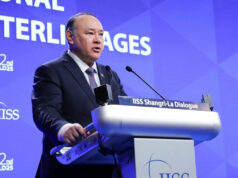Gov’t launches move vs fuel smuggling
By Melissa Luz T. Lopez
Senior Reporter
THE DEPARTMENT of Finance (DoF) is counting on the rollout of the fuel marking scheme to deter smuggling and further improve revenue collection.
The DoF and the Bureau of Customs (BoC) on Wednesday launched the fuel marking program a year after the original 2018 rollout provided under Republic Act No. 10963 or the Tax Reform for Acceleration and Inclusion Act (TRAIN).
“With the implementation of the fuel marking program, hopes are high that the smuggling and the misdeclaration of petroleum products will be eradicated and revenue will reach new heights,” Antonette C. Tionko, undersecretary for the Finance department’s Revenue Operations Group, said during the bureau’s 117th founding anniversary ceremony held yesterday at the Customs headquarters in Manila.
Fuel marking involves mixing low concentrations of dyes with fuel to determine whether shipments have gone through legal import channels. Marked fuel will show that those who brought in such shipments went through the proper import checks and paid the required tariffs.
Customs collections logged an all-time-high P592.869 billion in 2018, surpassing the P584.881-billion target for the year.
This year, the bureau — the government’s second-biggest tax collector — aims to rake in P662.165 billion, up 12% from 2018.
Customs Commissioner Rey Leonardo B. Guerrero, a former armed forces chief, told reporters that nationwide implementation by next month will include mandatory checks on oil depots as well as random inspection of gasoline stations.
The DoF signed a contract with the joint venture of Switzerland-based SICPA SA and SGS Philippines as the service provider for the fuel marking program in October last year.
The government’s partner will provide a unique chemical marker for gasoline, diesel and kerosene and also administer confirmatory tests for the products.
The service provider will roll out mobile fuel analyzers that will allow on-site testing of marked fuel in gasoline stations. Fuel samples will be fed into the equipment, which will then run a test that will take three to five minutes to complete. The equipment will detect whether the samples are compliant or adulterated due to a mix of marked and unmarked fuel.
The DoF has estimated that the government loses P25-40 billion annually from smuggled fuel, representing unpaid import duties.
The department estimates revenue leakage from fuel taxes at P26.87 billion in 2016, about half the P52.56 billion in taxes collected from petroleum products that year.
This comes after a fresh increase in the excise tax imposed on fuel products, as provided under TRAIN.
Taxes on petroleum products have risen by another P2 per liter, on top of the P2.50/liter increase that took effect last year.
On top of this, oil is also subject to the 12% value-added tax.



